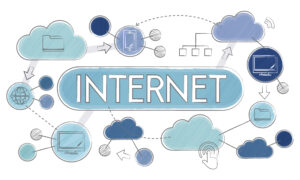Software development isn’t just about writing tons of lines of code. It is a complex world in which the technical expertise of each software developer is undoubtedly a crucial need, however, soft skills are not less important. Another realm of skills that distinguishes a good developer from an exceptional one. Improving your soft skills can advance your career and as well as make you more satisfied in your job. Join us in this article to reveal the 10 most important soft skills of each developer/programmer/engineer or even architect.
Key software developer soft skills
Let’s dive into the list of key soft skills, that every software developer should utilize:

Effective Communication
Effective communication stands as the cornerstone of successful software development. Whether collaborating with team members, discussing project requirements with stakeholders, or providing updates on progress to the client, the ability to convey ideas clearly and concisely is essential. Strong communication skills facilitate smooth collaboration and ensure everyone is on the same page. It includes both active listening to properly understand and public speaking to express your ideas adequately.
Problem-Solving
Software development is inherently problem-solving. Soft skills such as critical thinking and the ability to analyze problems and break them into smaller pieces methodically contribute to a developer’s effectiveness. The capacity to approach problems from various angles and come up with creative solutions is invaluable in navigating the intricacies of coding and project development.
Time Management
Software development is a field where a dozen of processes are going on parallel and the developer needs to have an overview about them. Soft skills like organization, prioritization, and the ability to meet deadlines are crucial. Effective time management ensures that projects progress smoothly, milestones are achieved within agreed deadlines, and the overall development process remains on track.
Adaptability
The tech industry is dynamic, and software development projects often undergo changes. Soft skills related to adaptability, flexibility, and a willingness to embrace change are essential. Developers who can quickly adapt to evolving project requirements contribute to the resilience and success of the development process.
Empathy and emotional intelligence
Understanding the end-users’ needs, feelings and experiences is a soft skill that elevates software development. Empathy allows developers to create user-centric solutions that address real problems. It involves stepping into the users’ shoes, anticipating their needs, and crafting applications that enhance their experiences. It is important to respond appropriately, especially in challenging situations.
Negotiation
Once the software developers communicate with stakeholders or clients, the ability to negotiate can be priceless. Aligning the interest, approving of the key points, or discussing the budget can be stressful if the person lacks the abilities. Developers can negotiate better salary conditions from the management or less strict deadlines from clients to ensure the satisfaction of every party.
Resilience and Stress Management
The nature of software development can be challenging, with tight deadlines and complex problem-solving. Soft skills related to resilience, stress management, and maintaining composure under pressure are valuable. Developers who can navigate challenges with resilience contribute to a positive team atmosphere. On the other hand, supporting a stressful atmosphere can be harmful to the mental health of the whole team.
Confidence
Did you expect this one on the list? Probably not, but it is important also in the software developer world. Often, a lack of confidence can be seen mainly in the junior developers starting their careers. Nevertheless, confidence is the silent force that propels developers forward, enabling them to make impactful decisions and face challenges with resilience. It is confidence in the skill set that empowers developers to present their ideas with clarity, make decisive contributions, and overcome the complexities of software development.
Creativity
Creativity in software development is the catalyst for transformative breakthroughs. It empowers developers to approach challenges with fresh perspectives and creative solutions that transcend the ordinary. Skills connected to creativity encourage both experimentation and the exploration of unconventional paths. Creative developers not only solve problems but redefine them, introducing innovative solutions that overcome previous limitations.
Leadership
Frequently Asked Questions (FAQs)
Is programming a soft skill or a hard skill?
Based on the definition, programming (coding) is considered a hard skill due to its technical nature.
Can I add soft skills to the resume as a software developer?
Yes, if you feel confident in any of the mentioned soft skills, it is definitely worth stating it also in your resume.
Is learning programming still worth it in 2024? Will be the programmers replaced by AI?
Yes, it is still worth learning. Don’t worry, artificial intelligence will not simply replace programmers. You can read the whole prediction explained in this article.
Wrapping up
As we navigate the world of software development, it becomes evident that the tapestry of success is woven not just with writing code and updating documentation but with a rich array of soft skills. From communication and problem-solving to leadership to confidence and leadership, these qualities are the glue that binds together thriving projects and resilient development teams. Mastering them will boost not only your salary but also your mental satisfaction at work. Mental satisfaction can be improved also by shopping discounts, can’t be?


